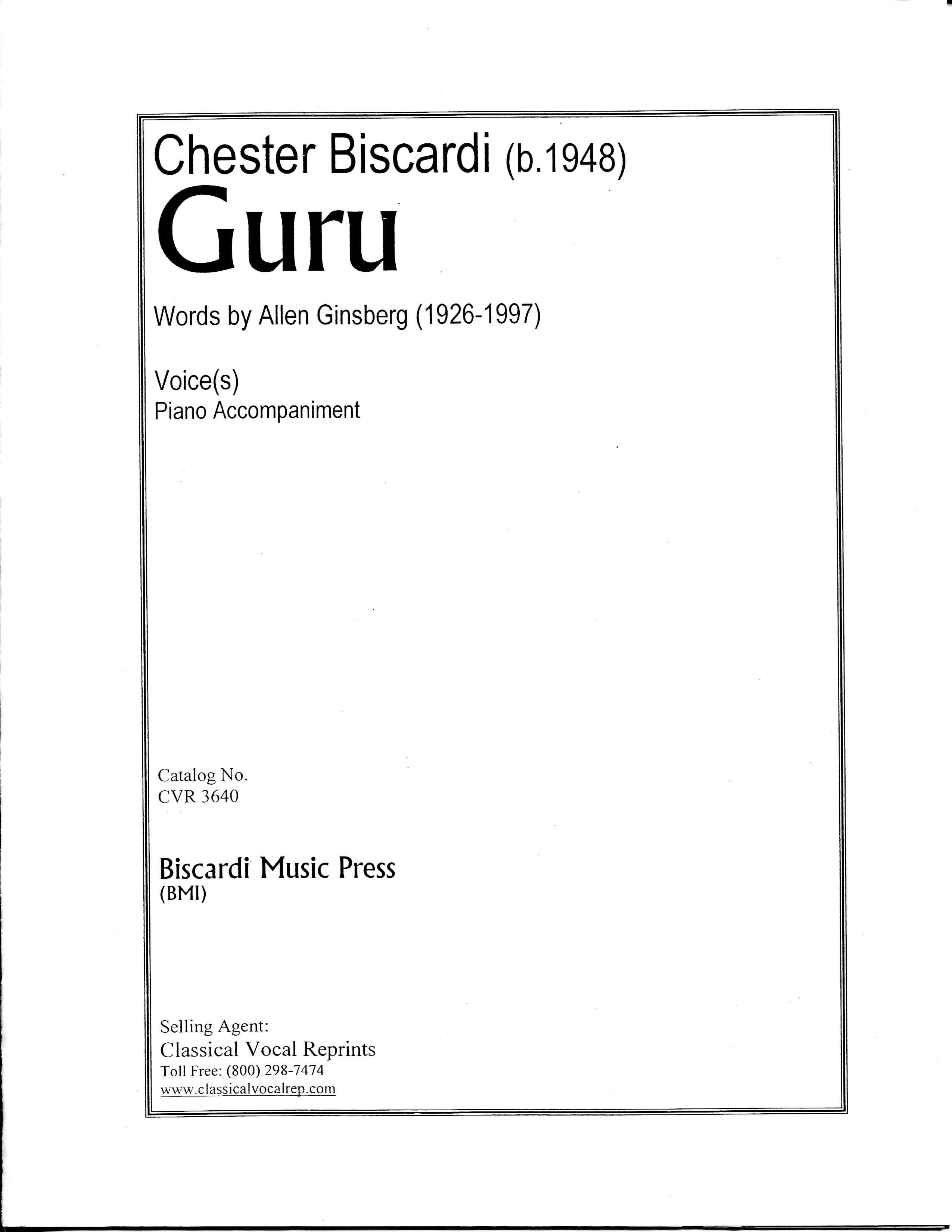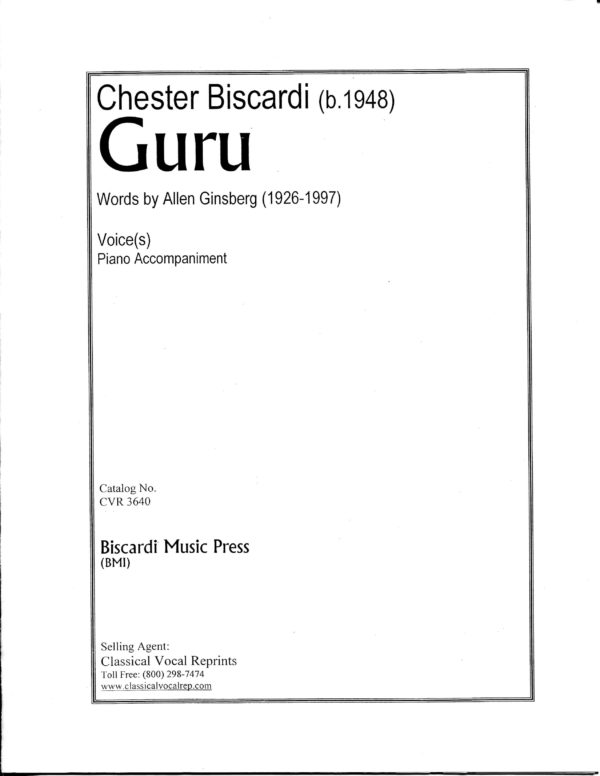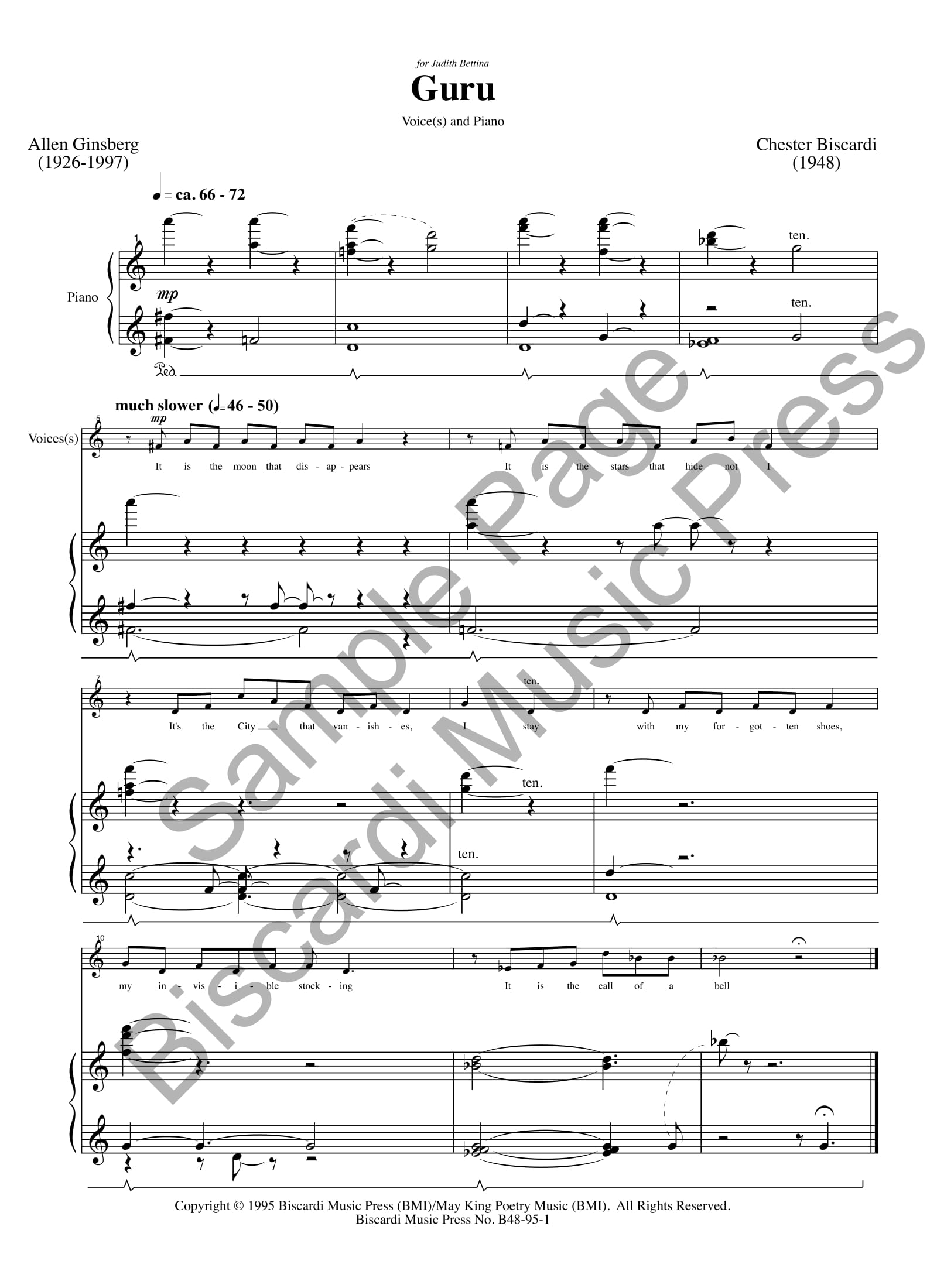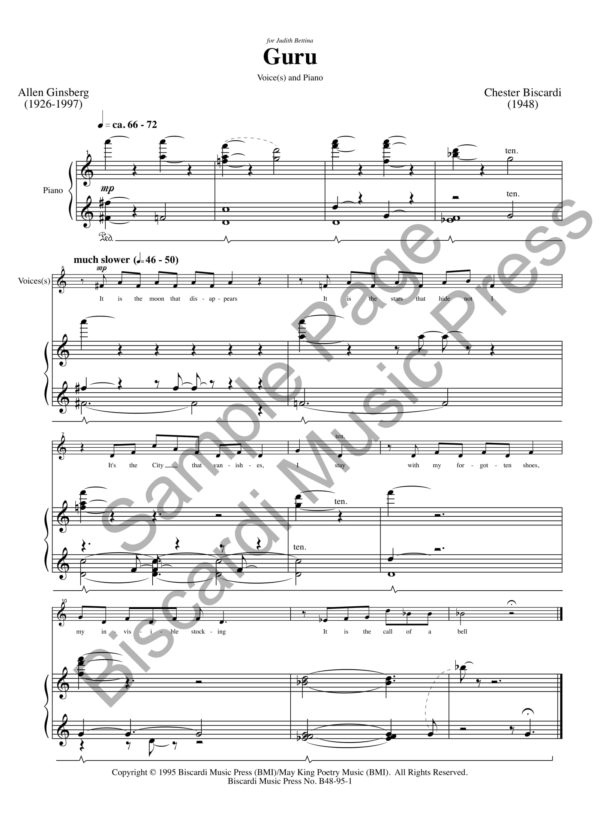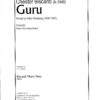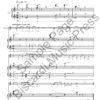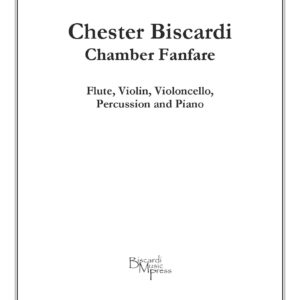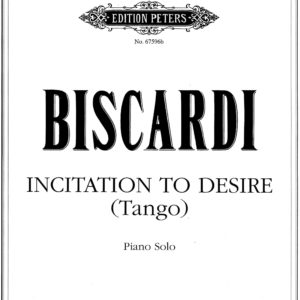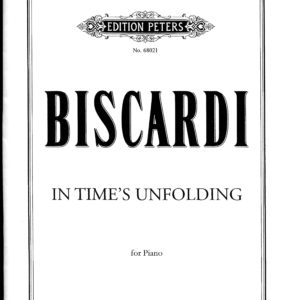Description
Audio
Premiere
First Vocal Performance: 17 May 1995
Judith Bettina, soprano / James Goldsworthy, piano
Kresge Recital Hall, Augustana College
Sioux Falls, SD
First Choral Performance: 15 November 1997
Sarah Lawrence Chorus (TB Only) / George Tsontakis, director / Chester Biscardi, piano
Copland in Song: A Benefit for the Copland Heritage Association for Cortlandt; Reisinger Concert Hall, Sarah Lawrence College
Bronxville, NY
Text
Allen Ginsberg (from "Primrose Hill, May 1965" from King of May: America to Europe, 1963-1965)
Vocal Range
D4 – D5
Dedication
Written as an encore for the soprano Judith Bettina
Publisher
Biscardi Music Press No. B48-95-1
Classical Vocal Reprints No. CVR3640: Print / Digital
Theodore Front Musical Literature, Inc.
Program Notes
GURU
It is the moon that disappears
It is the stars that hide not I
It’s the City that vanishes, I stay
with my forgotten shoes,
my invisible stocking
It is the call of a bell
Allen Ginsberg, from Primrose Hill, May 1965
from King of May: America to Europe (1963-1965)
Copyright © 1995 Biscardi Music Press (BMI)/May King Poetry Music (BMI). All Rights Reserved.
Press
Particularly impressive about Ms. Bettina's singing is how she can seem equally comfortable and compelling whether singing the leaping, entirely unpredictable music of Mel Powell, or in singing a song of haunting simplicity like Chester Biscardi's "Guru." In the latter work, based on the words by Alan Ginsberg, she conveys such meaning in the repetitive thirds that open the song, finding exquisite music in them that might elude a less careful interpreter.
— Gregory Berg, Journal of Singing (2008)
Guru is a setting of Allen Ginsberg, that in a few succinct strokes—comprising slightly over ninety seconds of music—perfectly conjures up, in Biscardi's words, "those city and interior landscapes that only Allen Ginsburg could write about in such a unique way."
— Hayes Biggs, Songs & Encores (2006)
The "call of a bell" in the somewhat enigmatic text of this one-page song refers perhaps to a call to meditation, or to some other altered state of mind. Bell-like figures in the piano create the mood for the chanted text of the vocal line.
— Judith Carman, "New Songs by American Composers: Chester Biscardi," Music Reviews, Journal of Singing (September/October 2008)
"This absorbing and beautifully-sung conspectus of recent American songs, largely composed in the past 20 years, covers a wide range of idioms. . . . The songs of Chester Biscardi and David Rakowski show that lyricism is alive and well in the hands of a younger generation. Five stars."
— Calum Macdonald, BBC Music Magazine (2007)

